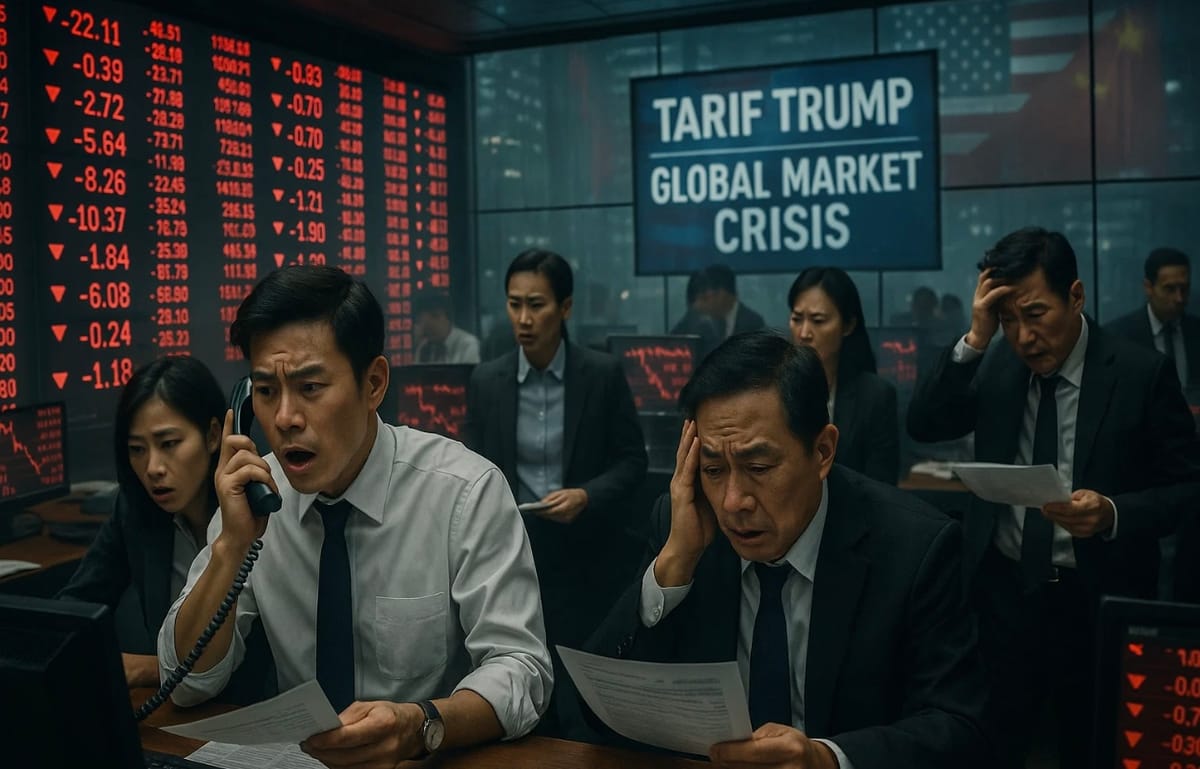Global Economic Crisis: Impact of Trump’s Tariff Uncertainty on Asian Markets
Trump’s tariff policy sparks global economic uncertainty, dragging down Asian markets and making investors wary. Read the in-depth analysis.

Global Economic Crisis Due to Trump’s Tariffs: Asian Markets Pressured, Investors on Alert
The import tariff policy imposed by President Donald Trump has returned to the global spotlight after the US Court of Appeals decided to uphold the tariffs temporarily. This court decision not only impacts international trade but also shakes global markets, especially across Asia. The resulting uncertainty has made global investors hold back and delay investment activities.
Legal and Economic Tension in the United States
The conflict began on May 28, 2025, when the US International Trade Court ruled that President Trump had overstepped his authority by using the International Emergency Economic Powers Act (IEEPA) to impose broad import tariffs. In its ruling, the court declared that international trade regulation is, in fact, an exclusive right of the US Congress, not the President. This decision sparked heated debate in the United States, as the Trump administration immediately filed an appeal with the US Court of Appeals.
Appellate Court Temporarily Maintains Tariffs
On May 29, 2025, the US Court of Appeals issued a decision to keep President Trump’s import tariffs in place while the appeals process is underway. This was intended to avoid abrupt policy changes before a final legal decision is made. However, this measure only prolonged uncertainty in the markets, as the fate of the tariffs would depend entirely on the outcome of the appeal.
Direct Impact on Asian Markets
Legal uncertainty in the United States was immediately felt in Asian stock exchanges. On May 30, 2025, Japan’s Nikkei index fell by 1.7%, Hong Kong’s Hang Seng dropped 1.4%, and South Korea’s KOSPI slipped 0.5%. Investors became highly cautious, considering that this tariff policy could disrupt global supply chains and damage trade relations between the US and its key partners such as China, Japan, and other Asian countries.
Investor Reaction: Delaying Investments and Hiring
The unpredictable situation has caused market players to wait for clarity before injecting more capital or hiring new employees. Analysts note that financial market volatility is expected to remain high until the court’s final verdict is delivered. This has a major impact on international capital flows and economic stability in Asia.
Trump Administration Response and Potential New Strategies
The Trump administration insists that import tariffs are vital to protect America’s economic security. Should the court’s decision ultimately revoke the President’s authority to impose tariffs, Trump’s economic team plans to use the Trade Act of 1974 as a new legal basis for implementing future trade protections. Such legal and economic maneuvering could trigger a new round of trade wars between the United States and China, further dampening global investor sentiment.
Potential Long-Term Impact on the World Economy
If the United States fails to find a stable solution, global markets will remain under pressure. Asian countries that have depended on exports to the US must look for alternative markets or adjust their export strategies. On the other hand, this uncertainty could become an opportunity for developing countries to strengthen bilateral economic relations outside US dominance.





Comments ()